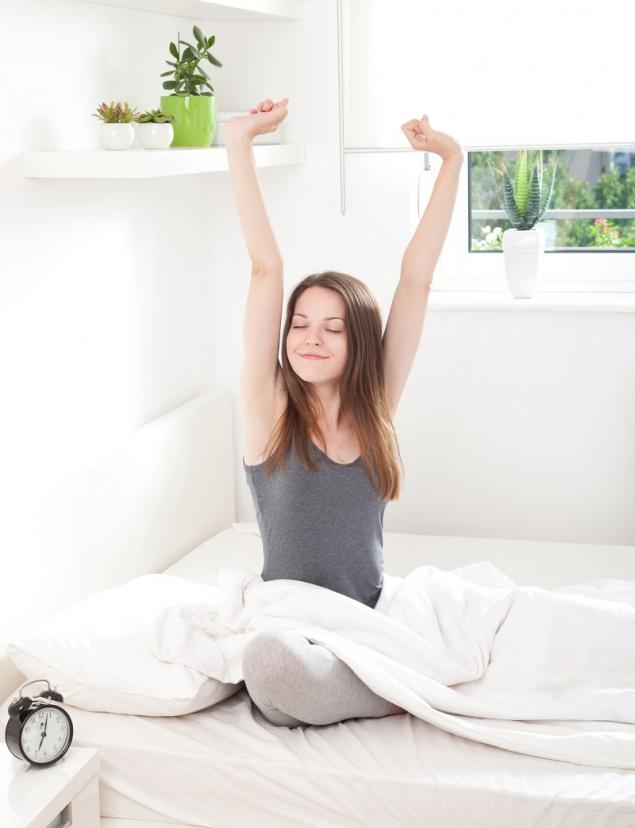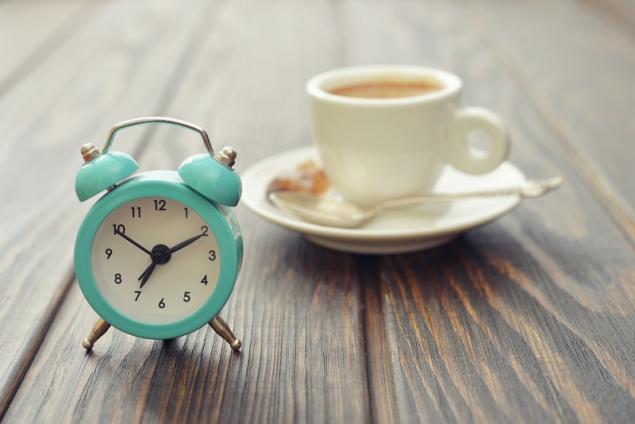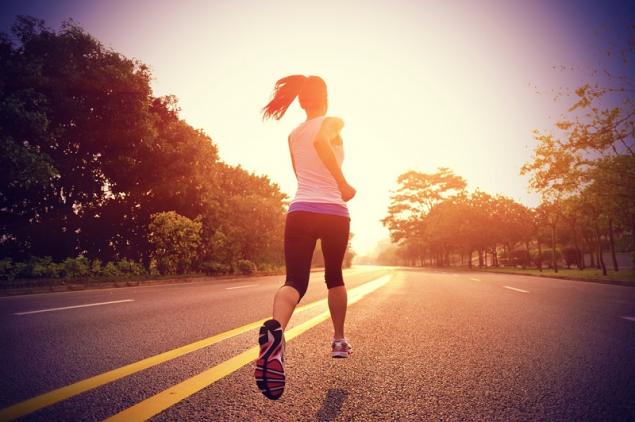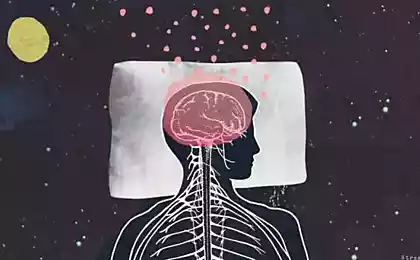195
How to set up a sleep schedule
How often did you wake up in the middle of the night and not know what to do? He suffered from insomnia, blamed himself for not sleeping, looked for something to do, tried to fall asleep immediately.
Many people wake up in the middle of the night to drink water or go to the toilet. Some of them experience anxiety due to interrupting their sleep and consider night wakefulness unnatural and harmful to health.

DepositPhotos
In fact, there may not be a reason for anxiety. Perhaps this way they are returning to the bimodal sleep regime that our ancestors practiced.

DepositPhotos
When there was no electricity, people did not often sit with a candle until midnight. They went to bed at sunset. Their brains had enough rest for 6 hours that they woke up in the middle of the night, about 2:00-3:00. And then lived the 2 most calm and meditative hours in the day. After that, they often fell asleep before dawn. The most active remained on their feet until the next sunset.

DepositPhotos
All of our life, our bodies, reactions, behavior, and health are connected with the universe, the motion of the planets, the solar and lunar cycles. For each type of activity, nature has its own, most favorable period of time. A person must live according to biorhythms, otherwise time will punish him with health problems.

DepositPhotos
What will happen if you do not sleep, we can feel on the example of one sleepless night: bad mood, irritability, fatigue, inhibition of reactions, swollen appearance, bags under the eyes, unhealthy shine of the skin. When this is repeated systematically, the consequences are even worse.

DepositPhotos
Both scholars and theologians agree that the interval between 3:00 and 4:00 is the best time for spiritual practice (prayers, meditation, mantra reading), or simply purifying thoughts.
During sleep, the mental energy of a person is restored. Mostly from 21:00 to 4:00. Night work is considered an extremely unfavorable type of occupation, and rest is a natural protection of the mental function of the body.

DepositPhotos Much attention is paid to the mode of the day by the Vedas. According to these scriptures, the human mind rests and gains strength from 21:00 to midnight. If you take into account that you need to get up before 6:00, and the amount of sleep necessary for most is 6-7 hours, then the optimal time for laying can be considered 22:00.

If a person goes to bed after midnight for a long period of life, he accumulates mental fatigue. The result of late styling are bad habits: smoking, coffeemania, as well as health problems.
If a person does not sleep from 23:00 to 1:00, his vital energy is reduced. Someone who does not sleep from 1:00 to 3:00 suffers emotional strength.

DepositPhotos
Sleep and wakefulness of the child Up to 3 years is slightly different from the adult regime. He can fall asleep during the day for several hours without any consequences. The child lives according to his biorhythms. The main thing is not to knock them down: not to lay and not to wake them by force.
Effects of the day It's a huge boon. Read more about the relationship between biorhythms and health in our articles. Follow the links.
Many people wake up in the middle of the night to drink water or go to the toilet. Some of them experience anxiety due to interrupting their sleep and consider night wakefulness unnatural and harmful to health.

DepositPhotos
In fact, there may not be a reason for anxiety. Perhaps this way they are returning to the bimodal sleep regime that our ancestors practiced.

DepositPhotos
When there was no electricity, people did not often sit with a candle until midnight. They went to bed at sunset. Their brains had enough rest for 6 hours that they woke up in the middle of the night, about 2:00-3:00. And then lived the 2 most calm and meditative hours in the day. After that, they often fell asleep before dawn. The most active remained on their feet until the next sunset.

DepositPhotos
All of our life, our bodies, reactions, behavior, and health are connected with the universe, the motion of the planets, the solar and lunar cycles. For each type of activity, nature has its own, most favorable period of time. A person must live according to biorhythms, otherwise time will punish him with health problems.

DepositPhotos
What will happen if you do not sleep, we can feel on the example of one sleepless night: bad mood, irritability, fatigue, inhibition of reactions, swollen appearance, bags under the eyes, unhealthy shine of the skin. When this is repeated systematically, the consequences are even worse.

DepositPhotos
Both scholars and theologians agree that the interval between 3:00 and 4:00 is the best time for spiritual practice (prayers, meditation, mantra reading), or simply purifying thoughts.
During sleep, the mental energy of a person is restored. Mostly from 21:00 to 4:00. Night work is considered an extremely unfavorable type of occupation, and rest is a natural protection of the mental function of the body.

DepositPhotos Much attention is paid to the mode of the day by the Vedas. According to these scriptures, the human mind rests and gains strength from 21:00 to midnight. If you take into account that you need to get up before 6:00, and the amount of sleep necessary for most is 6-7 hours, then the optimal time for laying can be considered 22:00.

If a person goes to bed after midnight for a long period of life, he accumulates mental fatigue. The result of late styling are bad habits: smoking, coffeemania, as well as health problems.
If a person does not sleep from 23:00 to 1:00, his vital energy is reduced. Someone who does not sleep from 1:00 to 3:00 suffers emotional strength.

DepositPhotos
Sleep and wakefulness of the child Up to 3 years is slightly different from the adult regime. He can fall asleep during the day for several hours without any consequences. The child lives according to his biorhythms. The main thing is not to knock them down: not to lay and not to wake them by force.
Effects of the day It's a huge boon. Read more about the relationship between biorhythms and health in our articles. Follow the links.
























